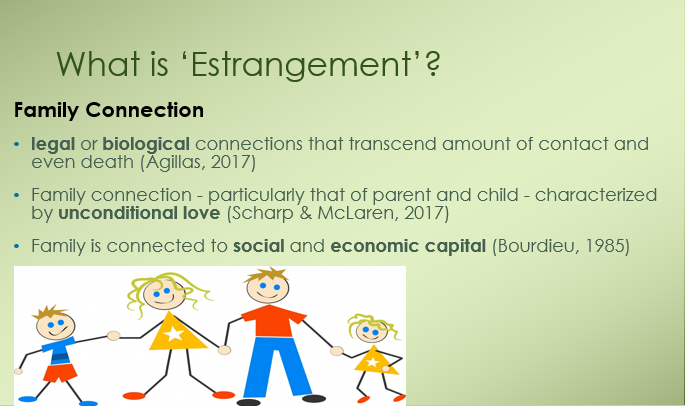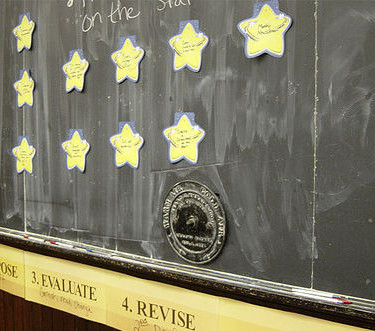At this year’s Edinburgh Festival, I went to see Poet Laureate Carol Ann Duffy read from her The World’s Wife (1999) collection of poems. In the book, Duffy takes well-known stories which focus on men, twisting and re-presenting these anew. In doing so, she centres the women at the margins of recognition, invisibilised from the usual praised pages, as known ‘classics’, and must-reads fail to mention women as heroes or even as ‘here’. Instead of gendered repetitions, we hear, for example, of ‘Queen Herod’, ‘Mrs Midas’, ‘Mrs Aesop’, ‘Mrs Darwin’ and ‘Mrs Faust’. Academia also has its own titles and hierarchies, which can and cannot be heard; ‘You can call me my first name or my title but you cannot call me ‘Mrs Taylor’’. I don’t know who she, ‘Mrs Taylor’, is but she’s not me… yet she keeps coming into my inbox, greeting me via students’ expectations and re-genderings. Likewise, Duffy’s characters are also queer women, not quite hearing themselves in these call-outs: they often fail expectations and remain skeptical of their own gendered titles, stretching these beyond an essentialist narrative of family, pregnancy and parenthood – sometimes these aren’t the only cares after all (see, for example: http://www.genderandeducation.com/issues/watchingawedding/ ).
Centering the ‘wives’ complex and complicit cares reverses these go-to patterns, and constitutes a speaking back able to name sexism through time and place, able to explain the appeal and doubt of the ‘wife’ even when you thought you weren’t one of them. Within feminist academia and theory, the idea of presence and ‘speaking back’ has long operated as a challenge to mainstream social theory and knowledge production, with critiques of domestic division of labour, revealing how the success of some is sustained by the labour of others. Sometimes we fail in (feminist) expectations of care, or we find ourselves stretched too far and unable to care anymore – like some of the women characters in Duffy’s tales, these are not necessarily likeable positions, they, and possible we, are not necessarily likable women.
That these ‘past’ myths, histories and characters resonate with present and continued inequalities, including sustained disregard and displacement in many social fields, was evident in the audiences’ affirmation, from sighs to smiles. Like the characters which Duffy de-centers, academics have de-centred what comes to be known as ‘social theory’, highlighting the racialised gendering of the curriculum and the ‘classics’, and ultimately the profound reproduction – and challenging – of inequalities within educational spaces. Duffy’s poems have been widely included in (post)compulsory educational curriculum, instigating a pause on contemporary educational changes and feminist presences and, for me, posing a question on what ‘academia’s wife’ now looks like? Is she impacting, income generating, celebrating arrival and citing success? Is she still doing the dishes? A recent interruption at an event for early career academics (ECR) – where I hoped to be present in an encouraging and even ‘caring’ capacity – suggested we’re still in the kitchen, as we move in academia. In speaking to ECR colleagues we were interrupted by a senior male colleague who asked questions about catering, and clean-ups; the women will know, surely?
In telling the story of academia, what characters are rendered (in)visible, how might they speak back, including in and beyond the classroom, and how might these stories open up space for re-examining academia? Who is ‘academia’s wife’ and how is she silenced and speaking back now, when gendered divisions have been named but are continuously re-done? The Educational Futures and Fractures Conference (24th Feb. 2017) at the University of Strathclyde, hopes to address some of these questions (see: https://socialtheoryapplied.com/2016/08/17/call-abstracts-educational-futures-fractures/)
But question of insertion as gendered resolution is too simple; adding a woman often does not necessarily unsettle the story and, often, she might find herself unsettled. She might find herself captured and marketed as the institutional promise of ‘diversity’ made to smile, and sigh. The characters of Duffy’s poems are rarely, if ever, faithful or loyal women, if that is measured via a gendered expectation to serve a man, or to conform to socially normative idea of success. Her women interrupt, and such interruptions are indeed present in academia, alongside the unsettling. The senior man interrupted, made no excuses, and demanded a caring orientation, the ECRs obliged and then laughed, and sighed.










